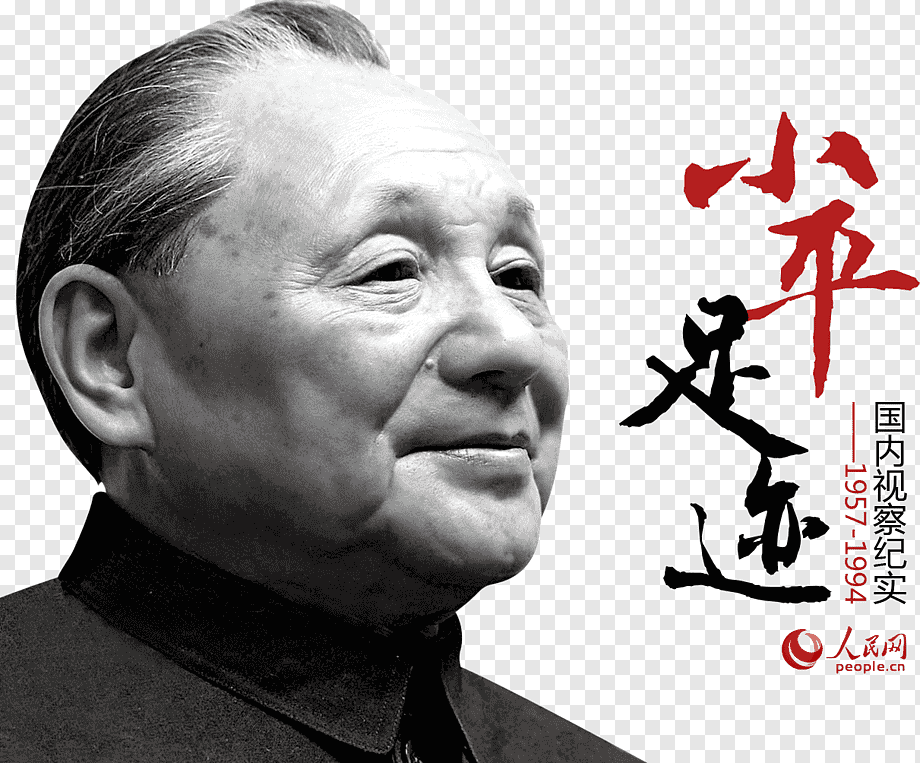You can totally say you’re a Marxists while repudiating the LTV. You would not be a Marxist, however.
I’d wanna ask you about David Harvey then, but outside of his reading of Capital he’s known for having some odd opinions. He’s also the only person I can think of who both claims to be a Marxist and doesn’t go along with LTV.
I would say he’s a Marx scholar and not a Marxist. Kinda like how there are atheists who study the Bible.
Yeah I’ve also heard of academics who call themselves ‘Marxians’ to mean while they study and apply Marxist economics, they don’t want the label of political Marxism.
deleted by creator
Eh ltv isn’t really Marx’s and if it were it would be one of his many significant contributions to various fields.
Marx may not have been the first theorist to come up with it, but the LToV is still foundational to most of the economic theory that did have its origin in his work. Furthermore, Marx did make contributions to the LToV itself, and in that sense it is one of his significant contributions to various fields.
It’d still be reasonable to call yourself a Marxist if you ascribe to other parts of his framework, especially in specific academic contexts. And in revolutionary contexts I doubt most non-academic revolutionaries fully understand the mechanisms laid out in Capital, so it seems inconsequential really.
A person doesn’t need to fully understand evolution by natural selection to consider themselves a Darwinist (biologically speaking, obviously I’m not talking about social Darwinism here). But if they reject evolution by natural selection as the mechanism for the diversity of species, then they are not Darwinists. Similarly, you don’t have to be able to explain the LToV let alone its nitty-gritty details, but if you claim that the theory is false, you probably shouldn’t be calling yourself a Marxist revolutionary.
Class analysis doesn’t inherently require ltv either.
Class analysis requires a mechanism for how one class exploits another economically, a mechanism that the LToV provides.
I do think ltv makes more sense than modern models, but Marx was basically using bourgeois theory to critique itself,
And that critique is what extended it beyond being merely bourgeois theory.
and arguably the same can be done using the more abstract modern models.
Maybe so. But are those models refutations of the LToV or elaborations on it? In either case, do you have examples?
deleted by creator
For what it’s worth, I agree with you on almost all of that. I think the main difference here is that I see the labor theory of value as being much more fundamental to Marxism than just, as you put it, one facet of it. It’s very difficult to keep Marxism as a whole if you toss out the LToV, since the whole structure would begin to crumble. It may be possible for similar models to be put in its place to prevent the crumble, but I think that those models would have to be close enough to the LToV that the distinctions wouldn’t really matter except to academics. (edit, fixed a word)
And in revolutionary contexts I doubt most non-academic revolutionaries fully understand the mechanisms laid out in Capital
Agree, one doesn’t have to be a Marxist to be revolutionary (see also: anarchist comrades) nor does one need to be a Marxist to be class-conscious. But it would be incorrect to call such a person a Marxist.
Marx was basically using bourgeois theory to critique itself
Yes, Capital was a critique of political economy, but not an entirely negative critique. He accepted the LTV in its basic structure. The main difference was clarifying what kind of labor counts as the content of value. He did this by applying a dialectical analysis, going from the
particular to theconcrete to the abstract and again in the opposite direction[1]. Only by doing this — in the process showing where in their analyses the earlier political economists went wrong — was Marx able to right the ship and arrive at the conclusions which now define Marxism.*edited a brain fart, also added Rubin details
I. I. Rubin, Essays on Marx’s Theory of Value ↩︎
When liberals ask “do you believe in the ltov?” they’re poisoning the well by implying that Marxism is some completely unscientific religion. No, the LToV is more like a definition of what Marx means when he says “value” and libs love to smugly say “that isn’t what value means according to xyz though” okay then we’re talking about something else aren’t we?
I mean I personally find the ltov to be more a more useful definition than other definitions of “value” because of what Marx does with it but to understand that you would have to read Capital and that’s too much commitment for a smuglord’s twitter post.
Understanding things in context was another thing Marx was big on so I’m positive he meant it to be taken that way.
libs love to smugly say “that isn’t what value means according to xyz though”
there is only one proper response to this and it’s stuffing them into a locker
The labour… Lens of value? Definition of value?

Dang I remember when Marx said that in his work “the theory of chuds”

By what means does the linen become a coat?
That’s the point logos235 is making right? That without the labor theory of value the whole thing falls apart
marxism is when you vote for joe biden and do yoga and not hate your wife
so like what happens when the labor theory of value gets “debunked”, does everything else we believe in fall apart like dominoes or does it like not actually matter if Marx was wrong about one obscure random thing no one ever talks about?
I imagine if the LTV got debunked we’d all have a good time never needing to work, since valuable goods apparently just appear out of nowhere.
Yeah well what if you made something and no one wanted to buy it? Checkmate, tankie.
Labour is what gives something value, but not all labour is of value (see: Keir Starmer)
Keir Starmer couldn’t even make a proper mud-pie if he was living in a bog
That’s essentially what liberals say
since valuable goods apparently just appear out of nowhere.
This is literally a foundational theory of mainstream liberal economic models, down in the bedrock where even econ grad students don’t get taught about it lmao.
It’s odd that Marx was inspired by liberal economists, yet the ones we see today are the caricatures of capitalists we see in old timey propaganda
LTV was the greatest achievement of classical liberal economy, but after developing it some more, they realised that by itself it is incredibly damning to the capitalist class and its further development points on socialism (like it led Marx to) and thus the pet economists since JS Mill took a step back into the current hamster wheel in which they still run almost 200 years later. It’s not coincidence that even liberal proponents and pioneers of LTV are forgotten (or never mentioned in the context of LTV) and bulk of even educated libs think it was sole invention of Marx - it allows them to claim entire scientific socialism is a cult and one single madman hypnosis over 1/3rd of humanity.
I mean the LTV is integral to how like capitalism and exploitation work, so the only “debunking” that ever happens around it is things like “hey why do things cost different prices at different times, markets and exchange are what create value not labour!” which is a point that Marx himself in Capital Vol. 1 calmly explains has no bearing on the LTV. You can’t debunk the labour theory of value unless you think humans doing stuff to things isn’t what creates value, which is frankly nonsense.
Ask them “If value and price are the same thing, what does it mean when an economist says something is over or undervalued?”
There are many different interpretations and solutions to the transformation problem (how are values “transformed” into prices). They range from ignoring it, making it more qualitative, reworking the math or definitions of value, etc. I’m not versed enough in all different interpretations, but one that I feel that I “get” and could explain is that offered by Ian Wright. Though his politics are too Trot for me, his correction of the transformation problem makes sense to me and I’ve wondered about doing a write up on it. It is under the framework of Input Output analysis with natural prices (equilibrium prices that act as an “gravitational attractor” for long term prices, this is also in the sphere of work done by economists such as Sraffa and Pasinetti), and he effectively takes Anwar Shaikh’s critique of Sraffa’s students (the Neo Ricardians) and applies this critique to their own model to show how the labor values of a good gives you natural prices but it requires care to ensure one is using the appropriate commensurate measure of labor in a commodity.
Effectively his response, and that of Shaikh from what I can tell, is that the profit of capitalists appears as if it comes out of nowhere and can’t be explained by the standard definition of labor value in Sraffa’s economic model. But the profit that capitalists make (after spending on means of production) get spent back into the economy (in the sphere of circulation) on real use values (say for their class consumption) which have a labor content due to being products of labor. If you “complete that path” of capitalist consumption goods back to their source (labor) and add that labor back into the labor content of a commodity, then boom - labor values march natural prices in Sraffa’s own model.
In other other terms: the standard view of a labor value is the amount of labor needed to create one unit of net output (the quantity of goods available for consumption after reinvesting some portion of them as materials for production). So this is labor that’s directly required for the production of the unit net good plus labor for the materials required for the unit net good. But, capitalists consume part of this net product and laborers only consume part of it. If the prices of the unit net good matched this measure of labor then prices would be low enough that workers could theoretically buy back with their money-wage their entire net product - leaving none for the capitalists. Some “markup” appears to exist and classical Sraffian model couldn’t explain this markup in terms of labor.
But if you measure a “non-standard” labor value (a la Wright) as the amount of labor needed to produce the commodities that only the working class consumes then you get a labor value that also explains this mysterious “markup”.
A non-standard labor value counts the amount of labor that is directly and indirectly required to produce a good due to technical conditions, but also the amount of (surplus) labor that is socially/institutionally required by workers to create their real wage (i.e. their consumed product)
I don’t claim to understand all of it, or be the best at explaining it. So my apologies for the difficulties. But it is an explanation that meshes with me, and my math-brain seems to get it (the original papers require knowledge of Linear Algebra). It also "cleans up Sraffa’s and Pasinetti’s economic work and brings that back into alignment with Marx.
Wright also has a dynamic version of this description which better gets at what is usually meant when people say a labor theory of value (the feedback loop between prices, values, and social division of labor)
Thanks for your detailed response comrade, it’s very insightful. I have a very superficial reading of sraffian economics (as a layman, I’ve been introduced to it by some ParEcon books), are there any other reading materials you would recommend to better understand it?
deleted by creator
Addressing Common Criticisms of the Labor Theory of Value
https://taiyangyu.medium.com/addressing-common-criticisms-of-the-labor-theory-of-value-bdf49281fab
You can totally say you’re a Marxist while not supporting Barack Hussein Obama. You would not be a Marxist, however.
I believe in Marx, the Father almighty,
maker of Scientific Socialism.
I believe in Vladimir Lenin, his first successor,
made traitor to the capitalists
by his loving wife Krupskaya.
He suffered under Tsarist Russia,
was hunted down, and censored;
then exiled to Europe.
One year he led the Revolution.
He succeeded in this endeavor
and is seated at the right side of Marx the Father almighty.
From there he will judge the leftists and rightists.
I believe in Yosef Stalin,
the united vanguard party,
democratic centralism,
scientific socialism,
anti-imperialism,
and progress ongoing. Amen.
- The Leninist Creed.
There, you happy? The three tenets are what I consider Marxism’s core to be.
*progress ongoing, as in cultural and institutional progress, as a note, something about economic base and ideological superstructure…
victoria 3 is therefore a marxism engine
I think they had to nerf some of the revolutionary/marxist features of the game because they realized it was too OP lol
it’s still the best way to max standard of living for most people, who knew
Umm wasn’t ‘the labour theory of value’ an artifact of contemporary liberal economic orthodoxy
Other labor theory of values had been proposed before Marx, but Marx developed it into a consistent and rigorous form. It was (and should now still be) obvious to even liberals that value is created through labor. How that works, in what amounts, and how that value is imbued and made useful in an economy are things that Marx developed entirely differently to his predecessors
Most people play games these days and talk about things being overpriced. I like to use this as a way of explaining value.
Why is the product overpriced? What measure is the person using when looking at a skin you can buy in a videogame to assess its value?
They know people will pay this price, and that it’s being priced at the maximum amount efficient for highest profit. But what makes them FEEL that it is overpriced?
Because the price is considerably higher than its value. The method of feeling out the value that human beings use is based on how much labour they think went into the product, proportional to the size of the audience that it is being sold to of course.
I like to use this internal feeling of value to get people to realise that they’re using this theory themselves internally without realising it.
Other gave good responses, but here are two papers which test the Marxian Labor Theory of Value with contemporary economic data if you are interested:
Zachariah, Dave. Labour Value and Equalisation of Profit Rates: A Multi-Country Study.
Tsoulfidis, Lefteris, and Dimitris Paitaridis. “Chapter 8 On the Labor Theory of Value: Statistical Artefacts or Regularities?” Research in Political Economy, edited by Paul Zarembka, vol. 25, Emerald Group Publishing Limited, 2009, pp. 209–32, https://doi.org/10.1108/S0161-7230(2009)0000025011.
The bibliography of the first paper also has a lot of related reading.
Yes. Marx discusses this at length in Capital and criticizes Ricardo and Smith. His contribution with surplus value and how it relates to the coat is one of his many contributions to advancing the LTV.
but what can you not drop? shitting on the clock, of course

























